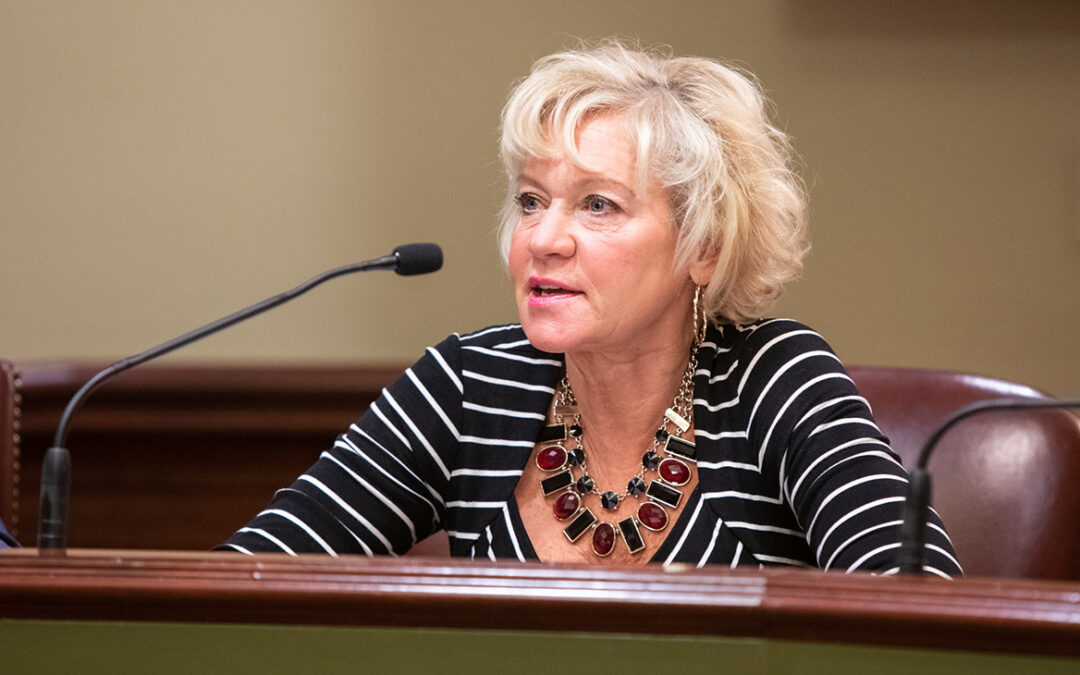Harrisburg – September 14, 2020 – The Senate Democratic Policy Committee today held a virtual public hearing to focus on issues impacting the arts, cultural and historical institutions across Pennsylvania.
“COVID-19 has impacted every aspect of our lives, and that includes those folks in the arts, and those who work tirelessly to preserve the expansive history and culture across our state,” said Senate Democratic Leader, Jay Costa (D- Allegheny). “This is not just about the arts and institutions in our big cities like Pittsburgh, Philly, and Erie. This is about preserving these institutions in all our communities.”
“It is imperative that we as lawmakers do all we can to help every industry in Pennsylvania make its way through this dual-threat of public fears about COVID-19 and government directives aimed at encouraging social distancing,” said Sen. Lisa Boscola (D-Lehigh/Northampton), chair of the Senate Democratic Policy Committee.
Pennsylvania has had over 140,000 positive cases of COVID-19, and there have been almost 8,000 deaths attributed to the virus. Medical experts have advised that mitigation measures, like proper social distancing and mask wearing, are the best defense against COVID-19 — and will save lives.
Many theaters, museums and cultural centers in Pennsylvania were forced to close their doors when the statewide stay-at-home order was put into place by Governor Tom Wolf in April. As the restrictions eased from Red, to Yellow, to Green, there are have been easements to limitations, but many institutions are still struggling to make ends meet and properly adhere to proper social distance and precaution guidelines.
“Pennsylvania has such a rich history of preserving the story of our nation and fostering art and culture along the way,” said Sen. Larry Farnese (D- Philadelphia). “Necessary closures due to COVID-19 have devastated the historical tourist and world-renowned cultural institutions in my district. Those who work in these fields deserve a just recovery too.”
Governor Tom Wolf allocated $2.3 million of federal CARES Act money to go towards grants for those in the artistic, cultural and historic preservation communities to support staff salaries, fees for artists or contractual personnel, and facilities costs. Announcements for the recipients of these grants will be released tomorrow, Sept. 14, 2020.
James Cuorato, President & CEO, Independence Visitor Center Corporation in Philadelphia said that his organization has already submitted an application to the Commonwealth’s Cultural and Museum Preservation Grant Program. “If successful, it will enable us to continue operations and serve our community. I commend the Wolf Administration for recognizing the dire needs of nonprofit-run attractions such as ours and designing a program to get us through these extraordinarily tough times.”
The U.S. Dept. of Commerce estimates that arts and cultural economic activity, adjusted for inflation, accounted for 4.5 percent of gross domestic product or $877.8 billion in 2017. In Pennsylvania, the sector contributed $25.8 billion to the state’s economy and employed 176,000 workers.
“Annually, the Kimmel Center welcomes over 1.2 million visitors and generates $585 million in regional economic impact. Last year, our operations generated $7.1 million in city tax revenue and $6.8 million in state tax revenue,” said Stan Applegate, Executive Vice President & CFO, Kimmel Center, Inc. “We have been the grateful recipient of various Commonwealth grants since the Kimmel Center’s inception, and we are proud to report that for every dollar the Commonwealth invested in the Kimmel Center, it has earned back approximately $2.15. We support 5,000 jobs annually, and each month the Campus remains closed puts 2,380 jobs and $5.3 million in household income at risk.”
Applegate said that the Kimmel Center is projected to lose $29 million dollars in gross revenue through December 31st, with the potential loss of $51 million if we remain closed through our fiscal year, ending June 30th, 2021.
Gail Harrity, President & COO, Philadelphia Museum of Art, said that despite the museum’s best attempt to maintain their operations and full staff. In July, the Philadelphia Art Museum had to reduce staff by 23% – 85 staff, 56 who held part-time positions and 25 staff who held full-time positions. This is after substantial salary reductions, the cancelation of exhibitions, programs and other cuts to non-compensation expenses at the museum.
Harrity also said that the American Association of Museums published a survey in July suggesting that a third of the nation’s museums – 12,000 institutions – might not survive the pandemic and its aftermath.
“In its nearly 150-year history, the Philadelphia Museum of Art has survived financial collapses, wars, pandemics and other catastrophic events. While COVID-19 has drastically changed the way that we operate, our staff, trustees and volunteers remain committed to stewarding our world-class collections and landmark building through these current challenging times,” said Harrity. “As has been critical to the museum’s survival in the past, the public-private partnership and support of elected and civic leaders at the city, state and federal levels is necessary to keeping the museum afloat.”
Applegate, of the Kimmel Center, also said that his organization was very grateful for the passage of House Bill 2484, which allows organizations to take out up to 10% of their annual endowment, as opposed to the previous limit of 7% annually.
Boscola said that while state law has been amended to allow arts institutions like the Kimmel Center the and the Philadelphia Art Museum to tap into more of their endowment funds to make ends meet, this has not always been enough to save jobs, and will impact these institutions into the future.
Alex Fraser, Producing Director at Bucks County Playhouse, said that he was very grateful to be a part of hearing, and to his state Senator, Steve Santarsiero (D- Bucks), for participating in the hearing and advocating for their Bucks County community.
“Financially, we’re looking at a loss of $5 million of revenue for 2019 and have cut our full-time staff from almost 60 to 28, most of whom are running our restaurant. Our monthly payroll in July 2019 was $196,000; this July it was down 75% to $46,000,” said Fraser. “I am proud to say we are half-way there, but we have still have mountains to climb.”
The following testified at today’s hearing:
- James J. Cuorato, President & CEO, Independence Visitor Center Corporation
- Gail Harrity, President & COO, Philadelphia Museum of Art Stan Applegate, Executive Vice President & CFO, Kimmel Center, Inc.
- Matías Tarnopolsky, President & CEO, The Philadelphia Orchestra
- Denise Smith, Vice President of Development, State Theatre Kassie Hilgert, President & CEO, ArtsQuest
- Jeanne Ruddy, Executive Director, Performance Garage
- Jenny Hershour, Managing Director, Citizens for the Arts in Pennsylvania
- Mitch Swain, CEO, Greater Pittsburgh Arts Council
- Melia Tourangeau, President & CEO, Pittsburgh Symphony Orchestra
- Sara Jane (Sally) Elk, President & CEO, Eastern State Penitentiary Historic Site
- Kyle McKoy, President & CEO, Mercer Museum & Fonthill Castle
- Alexander Fraser, Producing Director, Bucks County Playhouse
Senators Sharif Street (D- Philadelphia) and Lindsey Williams (D- Allegheny) also participated in today’s hearing.
The Senate Democratic Policy Committee has already held many hearings related to COVID-19, including the status of restaurants during COVID-19, the reopening of schools, the impact on nursing and veterans homes, food supply chain disruptions, the disproportionate effect of COVID-19 on the African American Community, maternal mortality during COVID-19, pandemic-related funding for childcare centers, and assuring that protective equipment and other support is accessible for all frontline workers.
A full recording of this hearing, and links to all previous hearings, are available at senatorboscola.com/policy.
###

